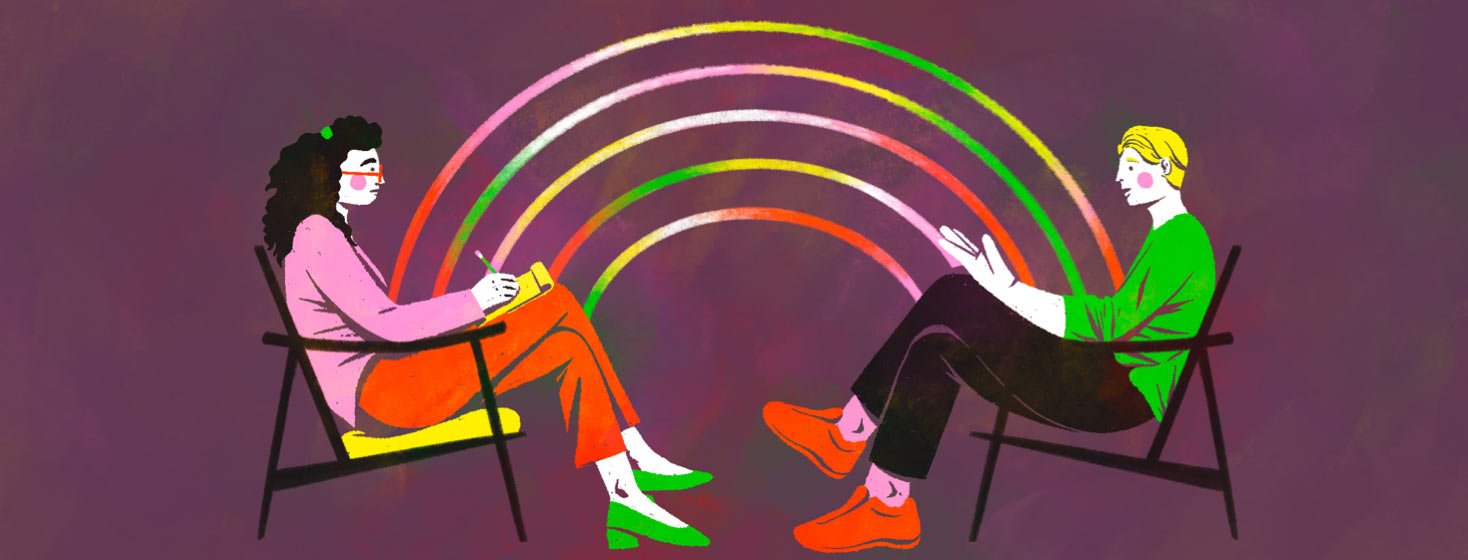Finding the Right Psychiatrist Is Not Always Easy
I have been seeing psychiatrists for 25 years, and in that time, I've had various experiences with them. Sometimes, I've found psychiatrists to be the worst influence in my life and sometimes the best. They have both saved my life and put my life in danger. This means I have very complicated feelings about the doctor-patient relationship.
The doctor-patient relationship
My first psychiatrist wouldn't listen to me and subsequently misdiagnosed me with depression. I was very young then and didn't have the tools to deal with that situation. It produced a very negative doctor-patient relationship that I didn't feel capable of improving.
However, a few months later, I was assigned to a new psychiatrist, and he was more receptive to what I had to say, and he eventually diagnosed me, correctly, with bipolar disorder. He tried very hard to help me; however, met with failure (Twenty-five years ago, there weren't nearly as many options as there are today.) This led to him firing me as a patient.
Not surprisingly, this was terrifying and confusing and did nothing but make my illness worse. After a few months, my psychotherapist sat me down and said, "If you want to live, you need to go back to your psychiatrist."
Finding the right bipolar disorder medication
My arm twisted; I went. My psychiatrist later admitted to over-enthusiastically "spring cleaning" his client list and said I was collateral damage. And while this didn't really create a positive working relationship, it was after this a miracle happened. I found a medication that helped my bipolar disorder. Nothing improves a doctor-patient relationship as much as effective treatment. That psychiatrist's insight to use an experimental treatment on my bipolar disorder saved my life.
As often happens in bipolar disorder, that miracle wasn't permanent. After a few years, I found my wellness sliding downwards. One new psychiatrist and then another, along with many new medications, made their debut. The second in that line I once compared to a lamppost, thanks to how cold and unfeeling she was. That said, our doctor-patient relationship actually wasn't bad. I have always preferred an exceptionally competent treatment provider over one that had a good bedside manner. (Yes, ideally, your psychiatrist should have both, but that's an awfully big ask, in my experience.)
My experience with vagus nerve stimulation
A lack of success led to trying vagus nerve stimulation (VNS) as a treatment. This treatment involves the surgical implantation of a vagal new stimulator and then adjustment of the stimulator via a specialized device. Few psychiatrists have this device, and so, once again, I had to switch psychiatrists so I could see someone who had one.
The new psychiatrist seemed like a good guy. Unfortunately, he made a pretty nasty error during the visit when he turned on the VNS. He turned it on five times higher than it was supposed to be. I won't go into detail about what that was like other than to say it involved instantaneous nerve pain and choking. After that, I didn't think I could even go back into his office again. It was terrifying and traumatizing. The doctor-patient relationship doesn't get much worse than literally being afraid for your physical safety.
That being said, with very few options in front of me due to the specialized implantation, I chose to move forward with him. At the next appointment I demanded that he admit what had happened and apologize. He did, and this mended things enough that I could continue.
I had to change psychiatrists again, and things got worse.
Struggling to find psychiatric care
I met a psychiatrist who refused to treat me in spite of my being acutely suicidal. She was, without a doubt, the worst. Her denial of my care almost cost me my life.
All of that led me to beg a previous psychiatrist to treat me again. He didn’t have to. The system said I was broken and couldn’t be fixed. He wasn’t even accepting new patients. But he agreed to anyway. That man saved my life.
A positive working relationship with my psychiatrist
He and I have a very positive working relationship to this day. We work as equals, banging away at the problem of my mental illness. I wish we were more successful, but the fact that we’re not is not his fault as much as it is the difficulty of my illness.
Obviously, I’ve had more psychiatrists than most (and to be honest, I skipped a few for expediency’s sake). This makes me qualified to say this: a positive doctor-patient relationship is possible. You have to match with your doctor. You have to be on similar wavelengths. You have to agree on treatment strategies. But all that is possible. It’s not necessarily going to happen with your first, second, or even third psychiatrist, but that relationship is one you can have if you work hard and seek it out (and maybe get a little lucky).
